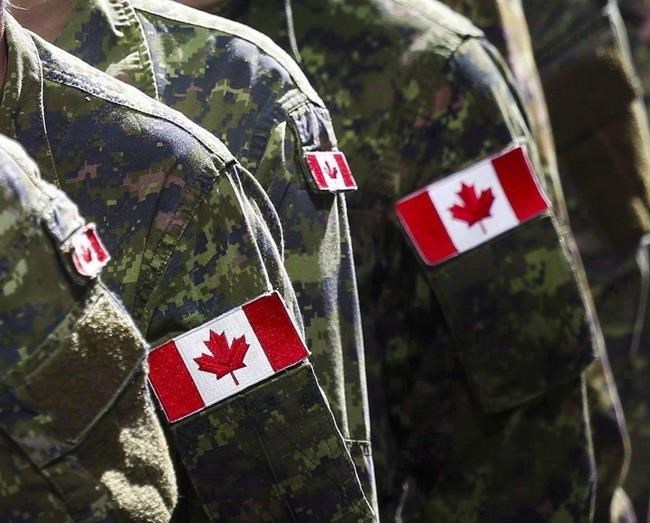OTTAWA — Unvaccinated military members are in for a tougher fight than a retired airman who was disciplined for refusing an anthrax vaccine 20 years ago, his former lawyer warns.
Jay Prober said some in the Canadian Armed Forces who don't want to take the current COVID-19 vaccines have contacted him because he defended Michael Kipling, the retired sergeant charged and ultimately acquitted of breaching an order to take an anthrax vaccine while serving in Kuwait.
"This would be much, much tougher and a much steeper mountain to climb," the Winnipeg-based lawyer said in a recent interview.
"It's completely different, quite frankly,"
Controversy over mandatory vaccinations for the military has re-emerged during the pandemic, with chief of the defence staff Gen. Wayne Eyre ordering all personnel to be inoculated against COVID-19.
Back in March 1998, troops serving in Kuwait City near Iraq's border were ordered to take an anthrax vaccine out of concern it could be used as a biological weapon.
That gave rise to the conflict with Kipling, a flight engineer who refused to be vaccinated because the vaccine was unlicensed in Canada. He had fallen ill after an earlier shot and feared the vaccine could be connected to an unexplained sickness other veterans experienced.
The doctor tasked with immunizing soldiers at that time was Stephen Ellis, the physician-turned-Conservative MP, who now assists Tory leader Erin O'Toole on shaping pandemic-related policies.
According to the reported testimony Ellis gave during Kipling's court martial in 2000, the doctor had served as a former captain and squadron medical officer.
He felt he was in a dilemma because, as a doctor, he knew patients should be able to provide informed consent, which didn't exist within the military structure because members must obey orders.
Despite briefing soldiers on the vaccine's potential side-effects, Ellis testified he couldn't appease Kipling's concerns and saw how his refusal to be vaccinated caused stress for a member with more than 20 years of service.
"Mike has a right not to take the vaccine, but he must also — by virtue of him wearing a uniform and collecting a (military) paycheque — suffer the consequences," Ellis testified, according to a report by The Winnipeg Free Press.
Through his office, Ellis declined to speak on the matter now.
O'Toole, who is himself a veteran, said recently that getting vaccinated against COVID-19 is a requirement for most military members because of their duty to serve. His support for vaccine mandates in the military is in contrast to his opposition to such requirements for air travellers and those working in federally-regulated sectors like trucking.
For Prober, the main difference between Kipling's case and the mandatory vaccination order some members and reservists face today is that the refusal to take the anthrax vaccine affected only Kipling.
"COVID vaccines are different," he said. "If you refuse a COVID vaccine you put others at risk, not just yourself."
For that reason, he said justifying a refusal becomes that much more challenging.
A Federal Court judge recently ruled against granting an injunction for several Forces members who didn't want to take their shots, writing they failed to demonstrate how their personal interest outweighs that of the public's.
Another key difference is that unlike the U.S.-made anthrax vaccine — which the military had special permission to use because it had not yet been approved in Canada — today's COVID-19 vaccines have been greenlit by Health Canada.
The Department of National Defence reports a vaccination rate among troops of 98.3 per cent. However, more than 830 members have received formal warnings, orders to attend counselling and probation for refusing to get jabbed.
Formal reviews have also been launched against another 100 unvaccinated troops who are still refusing to comply even after exhausting those other remedial measures.
Ultimately, unvaccinated service members could be dismissed from the military. So far, the department says 44 full-time members have left voluntarily.
In Kipling's case, his refusal to be immunized resulted in him being sent back to Canada and charged with disobeying an order "without a reasonable excuse."
He retired after the charge was laid, but a court martial was still held.
A military judge eventually ruled Kipling's charter rights had been infringed and accepted that the anthrax vaccine he'd been ordered to take could have been unsafe.
The Forces appealed the ruling and the Court Martial Appeal Court ordered a new trial, but the case was ultimately dropped.
Reached at his home this week, Kipling declined to speak.
This report by The Canadian Press was first published Jan. 19, 2022
Stephanie Taylor, The Canadian Press



